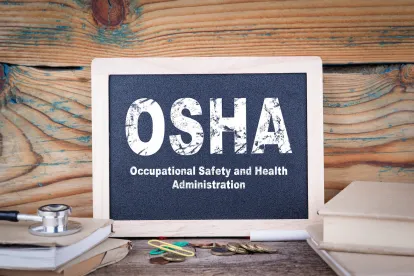Since the COVID-19 outbreak began, healthcare providers have faced a slew of new regulatory requirements. As many healthcare providers know, enforcement agencies have taken starkly different approaches in terms of how often, and how vigorously, they enforce these requirements. Recent reports show, however, that agencies are closely enforcing workplace safety requirements relating to COVID-19, especially as they pertain to healthcare providers. Within the past month, the U.S. Occupational Safety and Health Administration (OSHA) and its state counterparts have initiated thousands of enforcement actions regarding compliance with COVID-19 safety rules.
For example, late last month, OSHA fined several nursing facilities, including three located in Ohio, after determining that they had not followed applicable workplace standards concerning COVID-19. OSHA determined that these nursing facilities had failed to implement appropriate respiratory protection programs, failed to evaluate employees’ abilities to use respirators when required, and failed to appropriately record their health and safety compliance activities. Altogether, OSHA has opened over 400 inspections thus far regarding compliance with COVID-19 safety requirements.
OSHA also has received over 1,400 whistleblower complaints, which confirms that employees are pushing OSHA to enforce more vigorously. Employees also have pursued their rights in other ways, such as by bringing private causes of action raising alleged whistleblower claims, working with labor unions to demand changes to working conditions, and engaging in strikes and walkouts in an effort to pressure employers to change their health and safety procedures.
States have been closely enforcing COVID-19 workplace safety rules as well. These actions have been initiated by state-run OSHA counterparts, as well as certain state and local public health agencies. Public records show that these state and local agencies have conducted tens of thousands of workplace investigations, and issued at least 1,000 citations, regarding COVID-19 workplace safety compliance. States such as Michigan, Nevada, Oregon, and Washington have been particularly active.
Although most employers work vigilantly to provide safe working conditions, some have grown accustomed to the fact that, before COVID-19, workplace safety investigations were somewhat infrequent. Moreover, where employers have faced a slew of new regulatory requirements, it can be difficult for employers to keep up. Nevertheless, even while employers are working to begin complying with new COVID-19 requirements, they should regularly audit themselves to ensure they are abiding by preexisting workplace safety rules as well.




 />i
/>i

